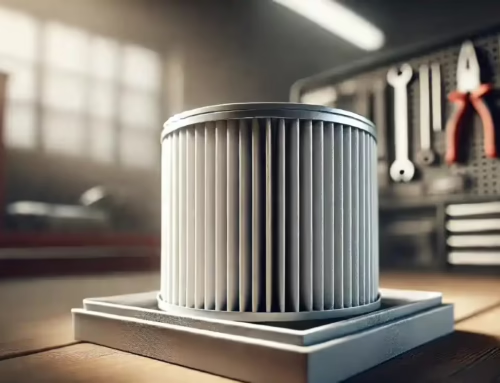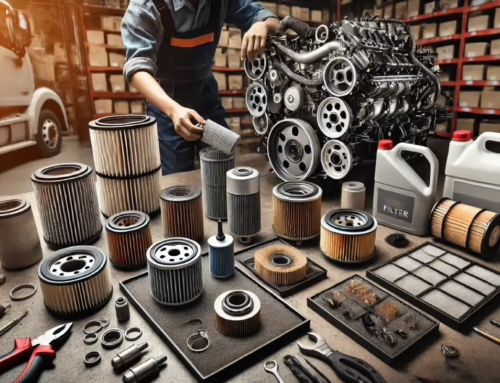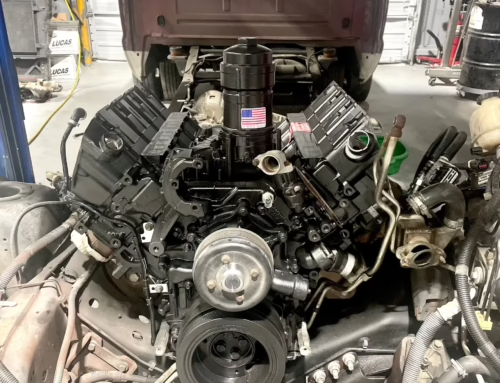Understanding the Role of Fuel Water Separator Filters in Heavy-Duty Trucks
In heavy-duty trucks, there are certain components that tend to sneak under the radar of your truck’s service needs — fuel water separator filters being one of them. You might not hear much about them, but these filters play a vital role in maintaining the health and performance of heavy-duty truck engines. So, let’s dive into the world of fuel water separator filters and understand why they are indispensable, and why you should pay more attention to them.
The Basics of Fuel Water Separator Filters
Before we get into the nitty-gritty of fuel water separator filters, let’s start with the basics. What exactly are these filters, and what do they do?
Fuel water separator filters, often referred to as just “fuel separators,” are specialized filters designed to remove water and contaminants from the fuel before it reaches your truck’s engine. Think of them as a protective barrier, only allowing clean fuel to reach your engine and kicking out any unwanted water and impurities during the combustion process.
Now, you might be wondering why we need these filters in the first place. Well, let’s uncover the dangers of water in fuel.
The Dangers of Water in Fuel
Water and fuel don’t mix well in heavy-duty trucks, let alone in any diesel vehicle. When water manages to find its way into your fuel system, it can spell trouble. Here’s why:
Engine Damage: Water can wreak havoc on your engine’s internal components. It can lead to corrosion, rust, and premature wear and tear.
Reduced Performance: If your engine is running on water-contaminated fuel, you can say goodbye to optimal performance. Your truck may lose power and fuel efficiency, which is never good news on the road.
Cold-Weather Issues: In colder climates, water in the fuel can freeze, causing blockages in fuel lines and filters. This can lead to engine stalling and, in some cases, complete breakdowns.
Filter Clogging: Water in the fuel can also clog standard fuel filters, making it harder for your engine to breathe. This results in decreased performance and potential engine damage.
Why Heavy-Duty Trucks Need Fuel Water Separator Filters
Now that you understand the perils of water in fuel, you might be wondering why heavy-duty trucks need fuel water separator filters. Well, the answer is quite simple: these trucks face unique challenges that make fuel separators a must-have.
For one, variability in the weather is quite a common occurrence for heavy-duty trucks operating in one or more regions, ranging from scorching heat to freezing cold. This increases the risk of water condensation in fuel tanks, especially during temperature fluctuations.
Also, for over-the-road semi-trucks covering long distances, they can encounter different fuel qualities along the way. Low-quality fuel can be a breeding ground for contaminants, making filtration crucial.
Types of Fuel Water Separator Filters
Fuel water separator filters are an integral part of your truck’s proper functioning, but what type of fuel separator should you get?
- Spin-On Filters: These are standalone filters that can be easily replaced during routine maintenance. They are a common choice for truck owners looking for convenience.
- In-Line Filters: In-line fuel water separator filters are installed within the fuel line itself. They are often used in conjunction with other filtration systems.
- Integrated Filters: Integrated filters are part of a larger fuel filtration system. They are designed to work seamlessly with the truck’s existing setup.
Each type has its pros and cons, so it’s essential to choose the one that best suits your truck’s needs and your maintenance routine.
Installation and Maintenance
Proper installation and maintenance of fuel water separator filters are critical for their effectiveness. Here are some key points to consider:
Installation: Ensure that the filter is correctly installed, and all connections are secure. It’s often best to rely on a professional truck service shop that offers filtration services for installation.
Regular Maintenance: Regularly inspect the filter for any signs of clogging or damage. Replace it as recommended by your truck’s manufacturer or the filter manufacturer.
Drain Water: Some filters come equipped with a water drain. Make use of this feature to remove accumulated water and contaminants.
Benefits of Using Fuel Water Separator Filters
We know about what are fuel water separator filters and why you should use them, but what are the benefits in heavy-duty trucks?
- Engine Protection: Fuel separators provide an additional layer of protection, keeping water and contaminants away from your engine.
- Improved Performance: Clean fuel means better engine performance, leading to smoother operation and fuel efficiency.
- Longevity: By preventing water-related damage and corrosion, fuel separators contribute to the extended life of your engine.
- Cost Savings: Avoiding costly repairs and downtime due to water-related issues can save you a significant amount in the long run.
Industry Standards and Regulations
It’s worth noting that the use of fuel water separator filters is often governed by industry standards and regulations. Compliance with these standards can offer peace of mind and ensure that your heavy-duty truck meets the necessary requirements for safe operation. You can find detailed guidelines in industry publications and official websites.
Final Words
It is abundantly clear that fuel water separator filters are indispensable for heavy-duty trucks. They safeguard your engine against the hidden dangers of water-contaminated fuel, ensuring that it performs at its peak, no matter the conditions.
By understanding their role and importance, you can ensure that your truck operates at its best, even in challenging conditions. So, when it comes to heavy-duty truck maintenance or fleet maintenance, don’t overlook the vital role of the fuel water separator. It’s a small component that makes a big difference, keeping your engine running smoothly on the road.




